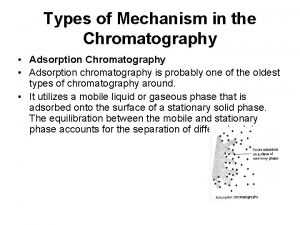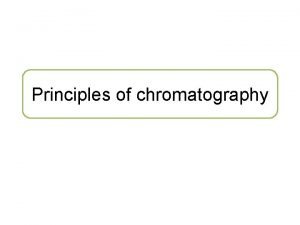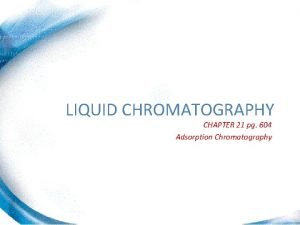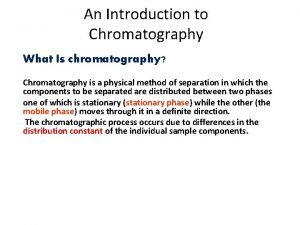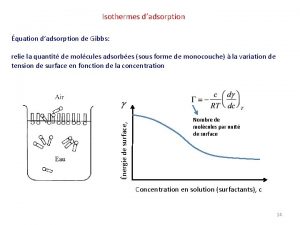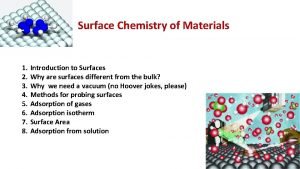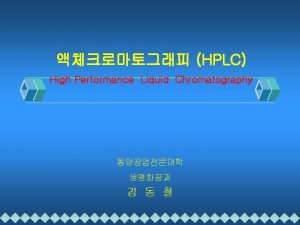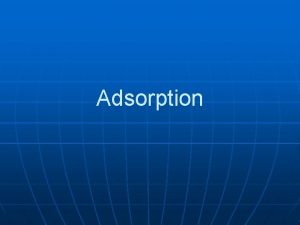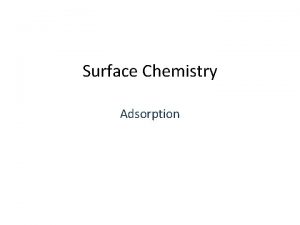Types of Mechanism in the Chromatography Adsorption chromatography





- Slides: 5

Types of Mechanism in the Chromatography • Adsorption chromatography is probably one of the oldest types of chromatography around. • It utilizes a mobile liquid or gaseous phase that is adsorbed onto the surface of a stationary solid phase. The equilibration between the mobile and stationary phase accounts for the separation of different solutes.

Partition Chromatography This form of chromatography is based on a thin film formed on the surface of a solid support by a liquid stationary phase. Solute equilibriates between the mobile phase and the stationary liquid.

• Ion Exchange Chromatography • In this type of chromatography, the use of a resin (the stationary solid phase) is used to covalently attach anions or cations onto it. Solute ions of the opposite charge in the mobile liquid phase are attracted to the resin by electrostatic forces.

Molecular Exclusion Chromatography • Also known as gel permeation or gel filtration, • this type of chromatography lacks an attractive interaction between the stationary phase and solute. The liquid or gaseous phase passes through a porous gel which separates the molecules according to its size. The pores are normally small and exclude the larger solute molecules, but allows smaller molecules to enter the gel, causing them to flow through a larger volume. This causes the larger molecules to pass through the column at a faster rate than the smaller ones.

Affinity Chromatography • This is the most selective type of chromatography employed. It utilizes the specific interaction between one kind of solute molecule and a second molecule that is immobilized on a stationary phase. For example, the immobilized molecule may be an antibody to some specific protein. When solute containing a mixture of proteins are passed by this molecule, only the specific protein is reacted to this antibody, binding it to the stationary phase. This protein is later extracted by changing the ionic strength or p. H.
